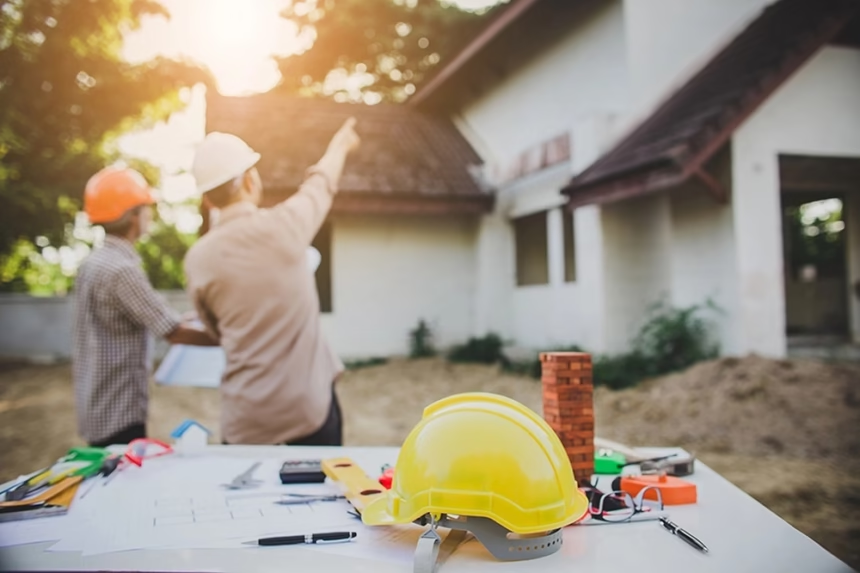In Virginia’s shifting 2025 housing market, smart renovations—not expensive ones—are what separate homes that sell fast from those that stall. After years of pandemic-era home improvement booms and inflated contractor costs, today’s homeowners are asking a different question: Which upgrades actually pay off when it’s time to sell?
According to Virginia-based real estate professional Douglas Hoven, the answer depends less on trend and more on psychology. “In 2025, buyers are cautious but still aspirational,” Hoven says. “They want move-in-ready homes, but they’re looking for substance—efficiency, functionality, and low maintenance—not flash.”
The Return of Practical Renovations
Gone are the days when high-end kitchens or spa bathrooms guaranteed a strong resale return. National cost-versus-value data and local Virginia trends both point to smaller, strategic improvements offering the best ROI this year.
“Many homeowners overspend on design trends that age quickly,” Hoven explains. “A well-executed $10,000 refresh can often outperform a $50,000 remodel if it aligns with buyer expectations for that neighborhood.”
Among the top performers: front entry replacements, modest kitchen updates, bathroom refreshes, and energy efficiency upgrades. These projects hit the sweet spot between visual impact and budget discipline—two things buyers notice immediately.
What’s Working in Virginia’s 2025 Market
Virginia’s real estate landscape is as diverse as its geography, and Hoven emphasizes that renovation priorities shift with local demand.
1. Curb Appeal that Signals Care
A clean exterior, updated landscaping, and a fresh coat of paint still top the list for resale impact. “Buyers make emotional judgments before they step inside,” Hoven says. “In Virginia’s suburban and coastal markets, well-maintained exteriors signal pride of ownership—and that drives offers.”
2. Energy-Smart Upgrades
As energy costs rise, buyers increasingly scrutinize utility efficiency. Insulated windows, updated HVAC systems, and improved attic insulation can enhance comfort and long-term savings. “In a state that sees both hot, humid summers and cold winters, these upgrades speak to buyers’ wallets,” Hoven notes.
3. Kitchen & Bath Refreshes
Refinishing cabinets, swapping countertops for durable materials, and updating fixtures can transform outdated rooms without over-capitalizing. “The goal is balance,” Hoven says. “You want a kitchen that feels modern without outpricing your neighborhood.”
4. Added or Reclaimed Living Space
Converting an attic into a functional living space remains a powerful value driver—particularly for multigenerational households and remote workers. The Danger of Over-Improving
Hoven warns that Virginia homeowners often make the mistake of improving beyond the ceiling value of their neighborhood. “You can’t renovate your way out of a market segment,” he says. “Buyers compare your home to others nearby, and if yours is priced too far above the area norm, the updates won’t justify it.”
He also points to overly personalized renovations—bold color schemes, niche amenities, or custom-built features—as potential turnoffs. “Resale success is about broad appeal,” Hoven says. “You’re staging for the next owner, not designing for yourself.”
Timing and Market Context Matter
Even the smartest renovation loses value if poorly timed. With interest rates and buyer confidence fluctuating, sellers who maintain their homes proactively—rather than waiting to make last-minute upgrades—often come out ahead.
“Deferred maintenance is the silent killer of resale value,” Hoven says. “A well-maintained roof and HVAC system do more for your sale than a trendy backsplash ever will.”
Virginia’s 2025 housing climate remains uneven: inventory shortages in some counties, buyer hesitation in others. Yet Hoven sees opportunity for prepared sellers. “When homes are move-in ready and priced correctly, they still move quickly,” he says. “Renovation isn’t about perfection—it’s about removing objections.”
A Measured Path to Value
As homeowners rethink their approach to resale, Hoven believes 2025 will reward those who invest in function, efficiency, and timeless appeal. “This isn’t the year for luxury for luxury’s sake,” he says. “It’s the year for thoughtful improvements that meet buyers where they are—financially and emotionally.”
For Virginians planning to sell within the next year or two, that might mean embracing subtle changes over sweeping transformations: better lighting, neutral finishes, resilient materials, and visible upkeep. “The homes that win in this market,” Hoven concludes, “are the ones that feel cared for, practical, and ready for the next story.”
Related News:
Over Market Speculation Causing a Ghost Housing Glut in Bangkok
















